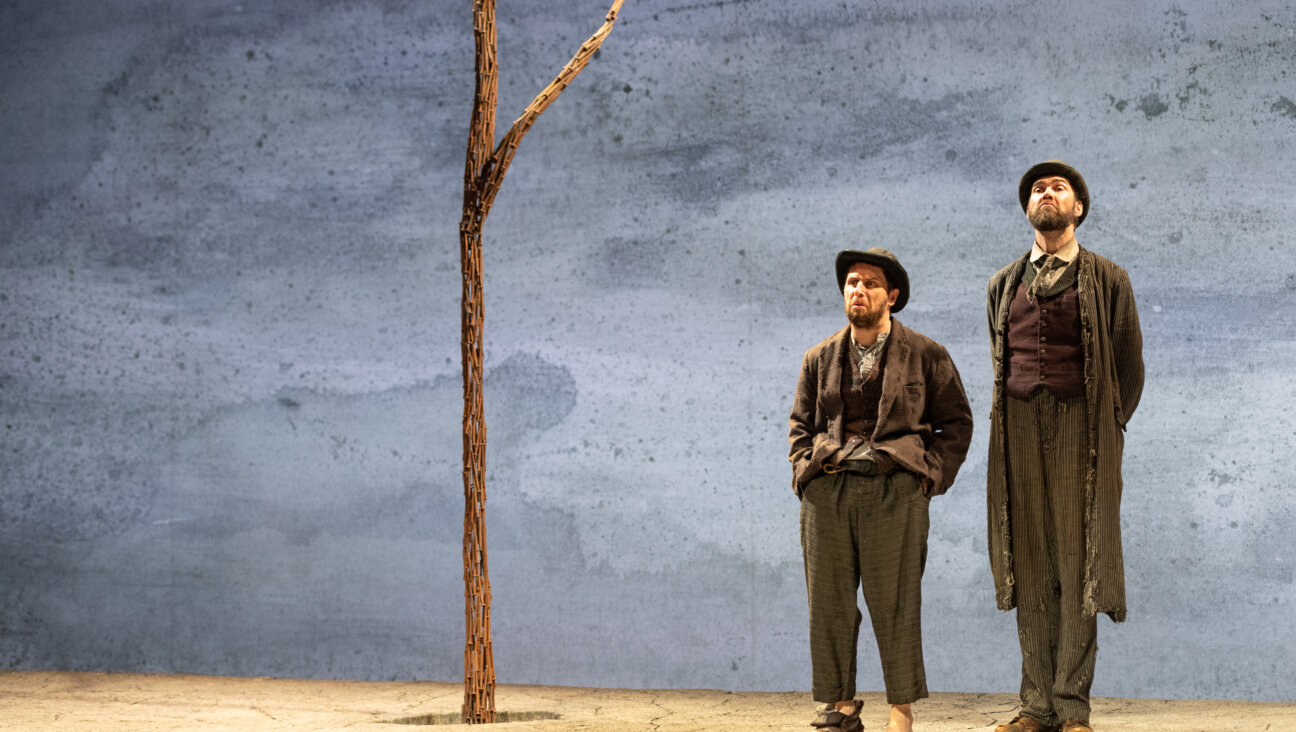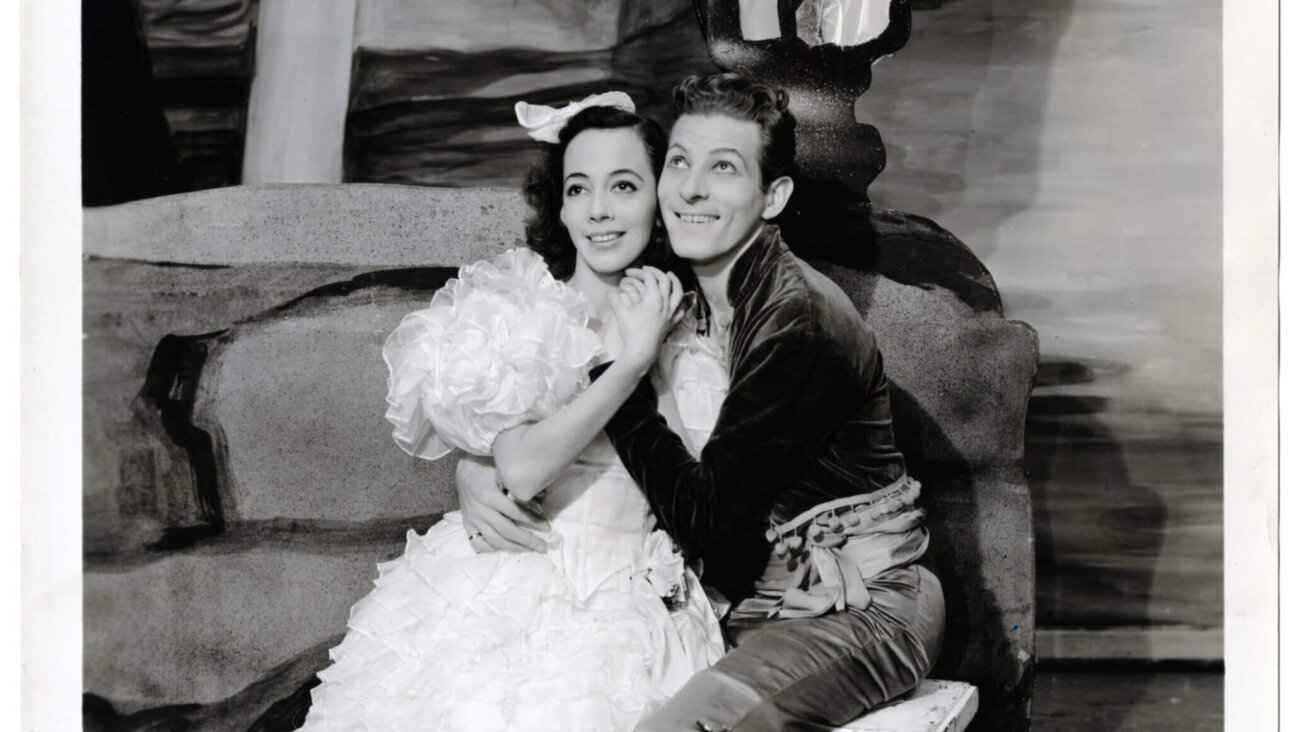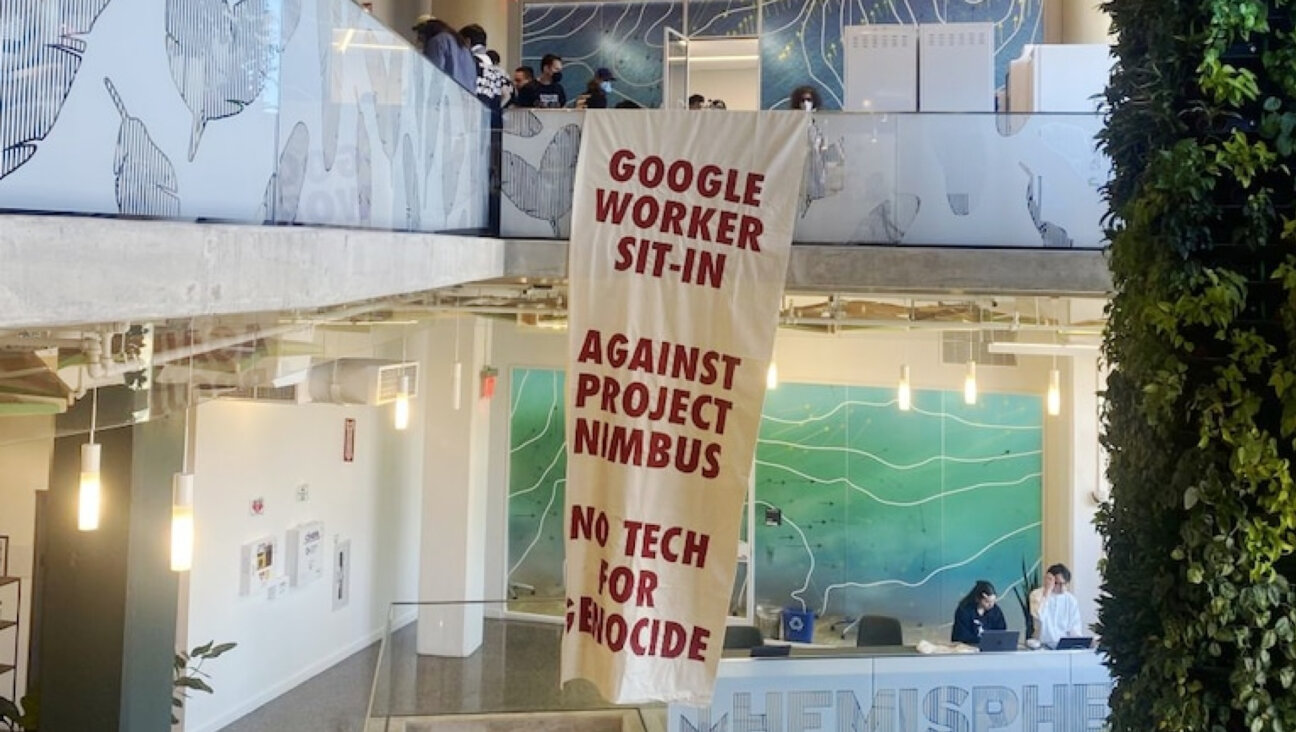Photographer Puts the Whole Jewish World in Focus
Zion Ozeri has made his living photographing Jews all over the world, from the mountains of Yemen to the streets of New York to the jungles of Peru. He has exhibited his work in galleries and museums and has published his photographs in newspapers, books and magazines. And now, Ozeri is bringing his work to a new space: the classroom.
This school year, Ozeri — in partnership with Avoda Arts, a nonprofit specializing in arts-based education — launched a new curriculum for Jewish day schools and Hebrew schools. Called The Jewish Lens, it uses his photography to teach Jewish values. “There is an educational component to my work, aside from aesthetic concerns, aside from historical concerns,” he told the Forward.
Last Thursday, at Manhattan Day School, Leslie Teicher gathered her class of sixth graders in a circle for the second lesson of The Jewish Lens. She held up a photograph of a weathered, white-haired man with military medals pinned to his jacket, standing before an El Al plane. First, the students described what they saw in objective terms.
“There’s a plane.”
“There’s a man with medals.”
Then subjectively.
“He’s a soldier.”
“He’s coming back from a war.”
Teicher then explained that the picture is of a Russian immigrant newly arrived in Israel in 1992. The students pondered the old man.
“He’s definitely scared,” one girl said. “He doesn’t know how life’s going to turn out in the new world.”
As the course progresses, the photographs and the texts will become the basis for discussions of the communities and values they illustrate. The project will culminate in a chance for the students to take their own photographs that illuminate the Jewish community and its values.
The curriculum’s genesis dates back to 2003, when Ozeri was in Los Angeles for an exhibition at the Skirball Cultural Center. A journalist asked him what he would do next, and Ozeri responded that he had been thinking about using his photographs as a teaching tool. The journalist suggested that Ozeri speak to Eve Fein, head of the Morasha Jewish Day School in Orange County. Over the next several months, Fein and Ozeri developed a program that used Ozeri’s photographs to educate students about Jewish values. “The [conventional] approach is always to the intellect. It’s not so much to the heart, the emotions,” Ozeri said. “I think art in general, and photography in particular” can resonate with people emotionally.
In early 2004, Ozeri hired professional curriculum writer Josh Feinberg to help him craft a formal lesson plan. Together they selected photographs for classroom use that represented Jews around the globe. “Really, it’s a visual literacy piece in service of Jewish content,” Feinberg said. “This is not a photography class. We’re not trying to train photographers. We use the photos to get at the content.”
That fall, a pilot program tested The Jewish Lens in six schools in the New York area. In response to teacher feedback, Ozeri and Feinberg revised the curriculum to make it more flexible so that both congregational schools and day schools could use it according to their schedules, and they trimmed the number of photographs. Last spring, Ozeri asked Avoda Arts to help distribute, market and administer The Jewish Lens. Debbie Krivoy, managing director of Avoda, described Ozeri as “an amazing educator.”
Both Ozeri and Avoda wanted to offer ongoing support to the teachers. “We’re not interested in selling a three-ring binder to teachers and washing our hands,” Krivoy said. Ozeri and the Avoda staff conducted a half-day training program for the teachers, and Avoda hired Tamara Mann as a program coordinator to respond if teachers ran into problems.
The curriculum offers suggestions on how teachers can expand or compress the schedule. Teachers are encouraged to add their own texts, or to bring visitors into the classroom.
Inevitably, the curriculum has taken a different shape in each classroom. Mann noted that the students at New York’s Park Avenue Synagogue were very concerned about what kinds of cameras they would use. “They’re treating the project as very fine art,” she said, adding that the class had finished off the project with a trip to Israel.
In contrast, Teicher announced to her students early on that they all would be using disposable cameras, which shifted the focus from the equipment to the content. “It’s not about the camera, per se,” she said. “It’s about what they’re capturing.”
During the current academic year, The Jewish Lens is being taught in nine schools in the New York area and six around Philadelphia. Avoda also worked with the Israeli Education Ministry and the Karev Foundation to translate the curriculum into Hebrew and teach it in seven Israeli schools. More schools have become interested, and more than 40 schools across America have signed up for next year.
So far, the response has been overwhelmingly positive. As one of Teicher’s students told the Forward: “It shows you a lot about history. It’s like you’re there. It has a meaning behind it all.”

I hope you appreciated this article. Before you go, I’d like to ask you to please support the Forward’s award-winning journalism this Passover.
In this age of misinformation, our work is needed like never before. We report on the news that matters most to American Jews, driven by truth, not ideology.
At a time when newsrooms are closing or cutting back, the Forward has removed its paywall. That means for the first time in our 126-year history, Forward journalism is free to everyone, everywhere. With an ongoing war, rising antisemitism, and a flood of disinformation that may affect the upcoming election, we believe that free and open access to Jewish journalism is imperative.
Readers like you make it all possible. Right now, we’re in the middle of our Passover Pledge Drive and we need 500 people to step up and make a gift to sustain our trustworthy, independent journalism.
Make a gift of any size and become a Forward member today. You’ll support our mission to tell the American Jewish story fully and fairly.
— Rachel Fishman Feddersen, Publisher and CEO
Join our mission to tell the Jewish story fully and fairly.
Our Goal: 500 gifts during our Passover Pledge Drive!
























